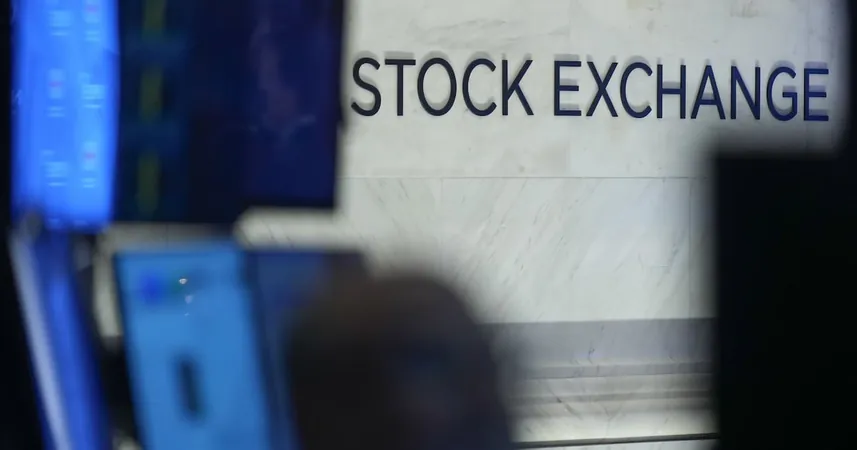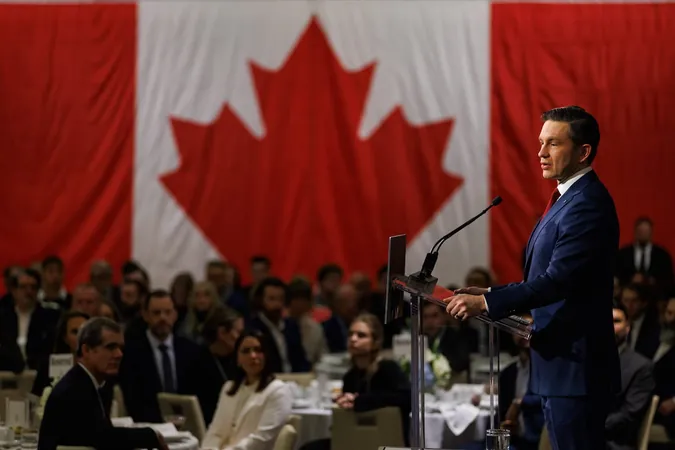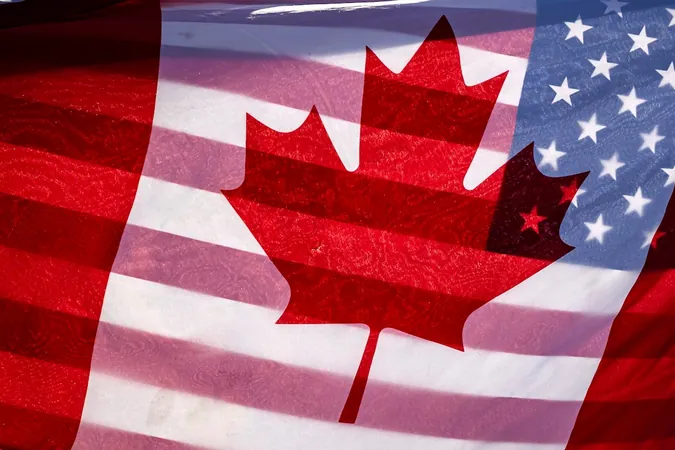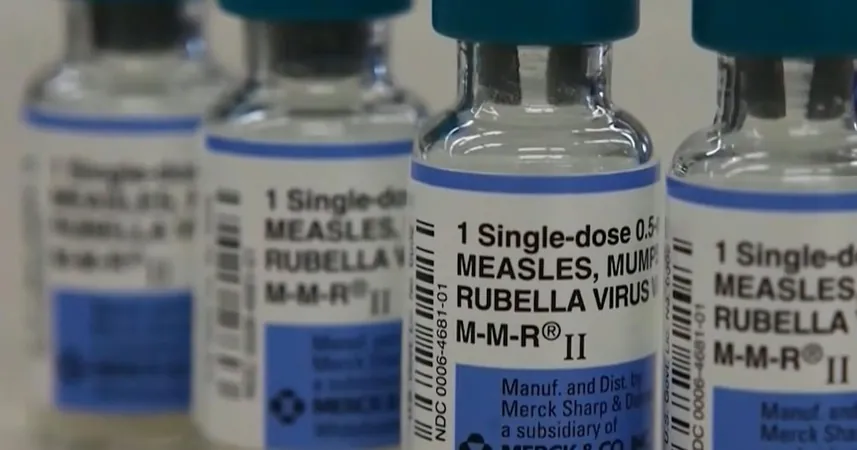
Wall Street Takes a Wild Ride as Trump's 'Liberation Day' Looms Over Global Markets
2025-03-31
Author: Charlotte
As President Donald Trump's much-anticipated "Liberation Day" approaches, financial markets across the globe are experiencing significant volatility. On Wall Street, the S&P 500 index climbed by 0.6% on Monday, bouncing back from an intraday drop of 1.7%. However, it still closed the first quarter with a troubling 4.6% loss, marking its worst quarterly performance in two and a half years.
The Dow Jones Industrial Average also experienced a roller-coaster day, erasing earlier losses to gain 417 points, or 1%. In contrast, the Nasdaq composite index fell by 0.1%, swayed by declines in major tech stocks like Tesla and Nvidia.
This wild fluctuation in the U.S. stock market is fueled by uncertainty surrounding potential tariffs that Trump claims will revive American manufacturing. As concerns grow over how these tariffs might exacerbate inflation and sluggish economic growth, global markets reacted sharply. Notably, Japan's Nikkei 225 index plummeted by 4%, South Korea's Kospi fell by 3%, and France's CAC 40 slipped 1.6%.
Safety assets, such as gold, saw price increases amid the market turbulence, briefly surpassing $3,160 per ounce. Treasury bond prices also rose, causing yields to dip; the yield on the 10-year Treasury note fell from 4.27% to 4.21%, a significant drop from around 4.80% earlier this year.
Trump is set to unveil what he characterizes as "reciprocal" tariffs on April 2. These tariffs are purportedly designed to match what foreign governments impose on U.S. products, including mechanisms like value-added taxes. Goldman Sachs economists speculate that the president may announce an average tariff of 15%, while simultaneously raising concerns about inflation and predicting a 35% chance of a recession within the next year.
If the tariffs prove to be less severe than expected, particularly in terms of limits on Chinese imports, markets could recover. Conversely, should the tariffs turn out to be more onerous, businesses may become wary, prompting layoffs and further declines in stock values.
Analysts at Morgan Stanley warn that if April 2 results in mere incremental changes rather than a clear resolution, uncertainty will likely persist, hindering potential economic growth.
Meanwhile, individual stocks on Wall Street felt the pressure. Tesla dropped by 1.7%, bringing its year-to-date losses to 35.8%. The electric vehicle manufacturer continues to face scrutiny, with CEO Elon Musk's involvement in government spending cuts leading to public dissent.
Nvidia, a company that has benefited from the recent AI boom, fell 1.2%, bringing its year-to-date loss to 19.3%. Other tech giants are also grappling with how their soaring stock prices have outpaced their profit growth.
On a brighter note, shares of Mr. Cooper surged 14.5% following news of its acquisition by Rocket Mortgage in a $9.4 billion all-stock deal. Meanwhile, Warren Buffett's Berkshire Hathaway emerged as a solid performer, rising 1.2%, as it continues to sit on an impressive $334.2 billion in cash—suggesting that the investment mogul might be waiting for better buying opportunities amid the current market conditions.
In an unexpected twist, shares of Newsmax skyrocketed by an astonishing 735% during its first day of trading, experiencing such volatility that trading was halted multiple times throughout the day.
In summary, the S&P 500 closed at 5,611.85, while the Dow finished at 42,001.76, and the Nasdaq ended at 17,299.29. As we brace for Trump’s upcoming tariff announcements, investors will be closely monitoring their implications on the economy and the stock market for the foreseeable future.









 Brasil (PT)
Brasil (PT)
 Canada (EN)
Canada (EN)
 Chile (ES)
Chile (ES)
 Česko (CS)
Česko (CS)
 대한민국 (KO)
대한민국 (KO)
 España (ES)
España (ES)
 France (FR)
France (FR)
 Hong Kong (EN)
Hong Kong (EN)
 Italia (IT)
Italia (IT)
 日本 (JA)
日本 (JA)
 Magyarország (HU)
Magyarország (HU)
 Norge (NO)
Norge (NO)
 Polska (PL)
Polska (PL)
 Schweiz (DE)
Schweiz (DE)
 Singapore (EN)
Singapore (EN)
 Sverige (SV)
Sverige (SV)
 Suomi (FI)
Suomi (FI)
 Türkiye (TR)
Türkiye (TR)
 الإمارات العربية المتحدة (AR)
الإمارات العربية المتحدة (AR)